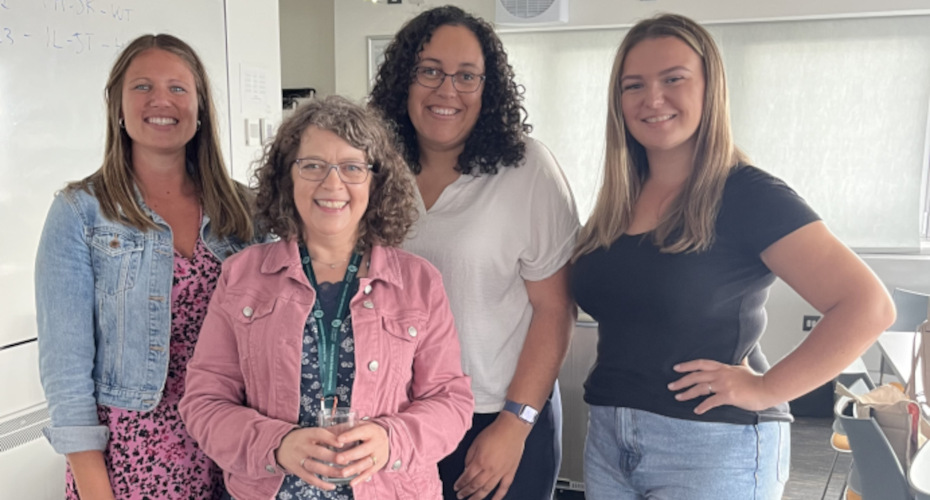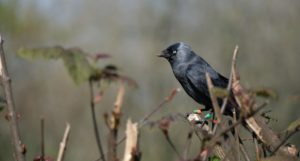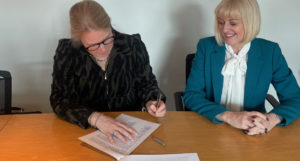Exeter celebrates 20 years of Medical Imaging excellence

Medical Imaging at the University of Exeter is celebrating 20 years of teaching and research excellence, training much-needed radiographers for the NHS and beyond.
Since the programme was launched in 2004 to help address a national shortage of radiographers, Medical Imaging has trained more than 1,000 radiographers, with active student placements in ten NHS trusts across Devon, Cornwall, Dorset and Somerset. The programme is consistently ranked among the best in the country, producing outstanding radiographers to help meet the needs of the NHS.
Professor Karen Knapp, Head of Department of Health and Care Professions at the University of Exeter, said: “Nearly everyone who is admitted to hospital will require some form of imaging procedure, yet the NHS is facing a real shortage of radiographers. For the last 20 years, our programme has been training high quality graduates to step into these roles, and we’re so proud of all they’ve achieved. We’re now celebrating how we’ve continued to innovate and grow, in both research and education.”
Government has recognised the need for 25 per cent more clinical radiographers, which would mean training 4,000 more than are currently active. The University of Exeter has adapted to meet this need. In the last four years, the team has launched the country’s first innovative degree apprenticeship in Diagnostic Radiography, which provides the opportunity to “earn while you learn”, and a mix of time in NHS and academic settings, resulting in a full degree and a pre-registration MSc degree apprenticeship as well as an MSci to help prepare radiographers for enhanced practice
Meanwhile, the team’s research output has grown, with some examples of projects including examining how routine x-rays could help detect osteoporosis early. Other research includes innovative imaging techniques to plan radiotherapy for breast cancer, using artificial intelligence in imaging to detect anomalies in scans more effectively, and innovations in both PET and CT scanning.
Chaleigh O’Brien, 38, who lives in Taunton, was among the first group of students to enrol on the programme in 2004, graduating in 2007. She said: “I chose Exeter’s brand-new Medical Imaging course because I wanted to be part of something pioneering and innovative – and I certainly wasn’t disappointed. The programme really built my skills and confidence. My career so far has taken me through paediatrics and ultrasound, before moving into veterinary scanning and back to ultrasound. Now I’ve come full circle – I’m now a lecturer and practitioner in Medical Imaging, splitting my time between lecturing and clinical practice in ultrasound and I love seeing how much things have progressed for our current students.”
Felicity Stringer, 38, who lives in Surrey, was in the same first group of students and now works at specialist veterinary referral practice, Fitzpatrick Referrals, for Professor Noel Fitzpatrick – also known as the Supervet. She said of the programme: “Right from the start it was clear that this brand-new course was going to be special and different. Us students bonded through the common goal of wanting to become qualified radiographers, and I feel incredibly lucky to be part of that wonderful group, supported by amazing staff. They were truly inspirational, guiding us every step of the way. They pushed us beyond our comfort zones and empowered us to dream big. In my current role I use skills for everything from imaging rabbits to bears. I still regularly use the values Exeter installed; to constantly strive to take the best images possible, to interact with kindness and compassion, and to always get to grips with the physics – it’s the fundamental basis of everything.”
Hannah Grocutt, 36, who lives in Falmouth, Cornwall, was among the first students to take the Degree Apprenticeship programme, meaning she could continue working in Cornwall while she learned, and could earn a salary throughout the programme. Hannah took an access course while pregnant with her first child, who was two years old when she found out about the degree apprenticeship. “It was absolutely crucial for me to be able to work and support my young family while learning. The apprenticeship was the first of its kind in the country, and for me, the journey has been nothing short of transformative. Being part of this pioneering programme has been a dream come true. Through the inspirational mentorship of the tutors, I discovered my passion for research, and that being a radiographer isn’t just about capturing images – it’s about being a vital part of a patient’s journey, providing comfort and reassurance.”
Find out more about the programme here – https://www.exeter.ac.uk/study/undergraduate/courses/medical-imaging/imaging/



